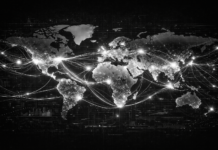
An online meeting of the world’s port state control (PSC) regimes and the International Maritime Organization (IMO) have agreed to find standardised methods of working to protect crew, other key workers and the environment, a statement from the IMO said on 10 April.
In a meeting called by the IMO that took place via video link over the internet on 8 April representatives of the 10 PSC regimes that cover the world’s oceans met to discuss the industry’s response to the current pandemic crisis.
IMO Secretary-General Kitack Lim said, “The maritime industry continues to be a vital artery for the global economy and highlighted the need for all involved to work collaboratively to address practical issues caused by the unprecedented global situation. He welcomed the prevailing spirit of cooperation, collaboration and solidarity in these challenging times – when shipping is more important than ever in the global supply chain.”
PSC regimes reported that while the number of physical on-board ship inspections have been substantially reduced, in an effort to protect both PSC officers and seafarers, the PSC regimes will continue to target high-risk and substandard ships, said the IMO statement.
In what the PSC representatives said was a “pragmatic, practical and flexible” approach, and in recognition of the fact that flag states have already issued waivers and extensions for certificates, the PSC wanted to find a harmonised regime within which the industry and its workforce would be protected.
With co-ordination from the IMO, the PSC’s agreed to collaborate to develop harmonised PSC policies to “ensure a consistent approach across the world”.
A number of IMO member states have already informed IMO on their certificate extensions, while some PSC, have also issued guidance on conducting ship inspections during the period of the pandemic crisis.
A joint statement issued by the IMO said, “The respective roles of flag States and port States to solve this crisis, in terms of supporting maritime trade, are paramount, and can also be significantly assisted by the industry. At the same time, the safety of life at sea, the protection of the marine environment and the respect of seafarers as keyworkers must remain shared priorities.”
Coronavirus information for shipping and seafarers
Advice and information circulated by IMO, including information from Member States and recommendations issued by IMO, can be found on the page: http://www.imo.org/en/MediaCentre/HotTopics/Pages/Coronavirus.aspx




